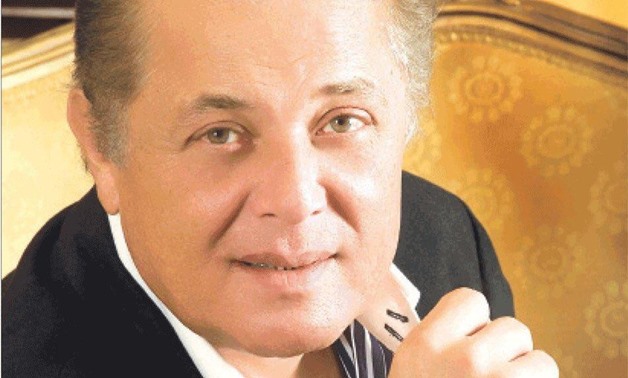
File - Mahmoud Abdel Aziz.
CAIRO - 5 June 2020: The late veteran actor Mahmoud Abdel Aziz is one of a kind actor who has a unique style.
His appearance in any film is a guarantee of its quality. For his audience, Abdel Aziz is “the delectation maker” whose performance always spreads cheerfulness no matter what role he plays. Egypt Today commemorates his birthday which falls on June 4.
Abdel Aziz was born in Wardeyan neighborhood in Alexandria on June 4, 1946, to a middle class family. He graduated from the Faculty of Agricultural Sciences at Alexandria University in the 1960s. Abdel Aziz first practiced acting on the university's theater.
He started his professional acting career in the 1970s’ with “Al-Dawama” (The Whirlpool) soap opera alongside the famous actors Nelly and Mahmoud Yassin; this series drew much attention to Abdel Aziz's talent. In 1974, he participated in the Egyptian classic film “Al-Hafeed” (The Grandson) which was his first movie.
During the late 1970s and early 1980s, Abdel Aziz's popularity dramatically increased as he starred in over 25 movies.
He was famous to be equally deft at both comedy and drama performances, and his success reached its peak when he performed in a group of the most significant movies in the 1980s.
In 1982, he participated in the magnificent movie “El-Aar” (Shame) playing the role of the addiction specialist who is torn between his work and the fact that his father was a drug dealer.
One of Abdel Aziz's unforgettable cinematic marks is his role in “El-Keif” (Addiction) in 1985. In this movie, Abdel Aziz performed the role of a singer who has a cacophonic voice yet his substandard songs still achieve booming success.
Salah, Abdel Aziz's character, succeeded with the help of his brother, a chemist, to invent a substance that is similar to drugs, proving that people get addicted to the idea of being drugged rather than to the drug itself.
Abdel Aziz asserted his fame in all Arab countries after his role in “Raafat el-Hagan," one of the most popular series in Egyptian television history. It is based on the true story of the famous Egyptian spy Refaat el-Gammal who was planted by the Egyptian Intelligence in Israel, where he lived for over 20 years before and after the October war.
Through his performance in this series, Abdel Aziz captured millions of TV viewers’ attention and hearts in Egypt and the Arab World. “Rafaat el-Hagan” shed more light on Abdel Aziz's Kazanova attitude, something that he continued to be known for throughout his career.
Among Abdel Aziz's other magical performances are his rules in “Kit Kat” in (1991), providing a dazzling performance of the sarcastic blind man with the great sense of humor despite his disability, and “Al-Saher” (The Magician, 2001).
Throughout his decades-long career, Abdel-Aziz starred in over 100 movies and numerous television series. Abdel Aziz dazzled his audience in 2015 with his successful series “Gabal el-Halal” (Halal Mountain) portraying the role of Abou Heiba, the powerful yet kind and fair drug dealer, showing the incredible contradictions that exist deep inside human beings.
In the beginning of his career, Abdel Aziz was that handsome guy suitable for romance films' posters only, but later he was lucky enough to work with some of Egypt’s most prominent directors, who came from different schools of art ranging from the realist, to the nationalist, to the feminist, to those who experimented with fantasy to tackle society’s macro problems Like Raafat el-Mihey.
The list also includes directors such as Mohamed Khan, Radwan el-Kashef, Samir Seif, Mohamed Kamel el-Qaliouby, Mohamed Haseeb, and Omar Abdel Aziz. These veteran directors managed to discover new areas in Abdel Aziz's performance; thus were able to shine his talent.
Abdel-Aziz was married to the famous Egyptian presenter Poussy Chalabi. He has two sons from his first marriage: Mohamed, a film producer and director, and Karim an actor.
The heartthrob Abdel-Aziz died on Saturday, November 12, 2016 at the age of 70.
Abdel Aziz will continue to spread happiness and inspire generations even after his death through his work which will remain immortal forever, engraved in the minds and hearts of his lovers.

Comments
Leave a Comment